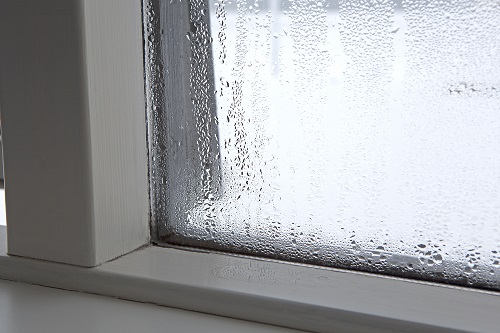Rainy Season
The rainy season is considered by many Japanese as one of the worst seasons because of its rain and humidity. Though you can sometimes look into the bright side of it, but there are just some things that cannot be ignored.
Rainy season in Japan usually begins in early part of May in Okinawa. In other regions, it runs from early June through around mid-July.
The weather during this season is unstable. Although it’s typically rainy with lower temperatures, sometimes it has less rain and can be hot.
One of the most hateful things about during this season is the humidity. As if, it isn’t enough that the summer in Japan brought unbearable high humidity, it continues to “punish” during rainy season as it is at its worst because of heat and rain combined. It is not uncommon for people to carry around extra shirts or pants to change into during the day, and it also isn’t strange for most people to take two showers a day during this time.
Dealing with Humidity and Mold
Mold may not seem very harmful, but it actually can have negative affects on people. Mold can cause nasal inflammation (allergic rhinitis), conjunctivitis (pinkeye) and asthma among other medical conditions. It can particularly be a problem for children or people with low immune systems thus, causing serious health issues. In worst case scenarios mold can affect the lungs and brain, so it should not be taken lightly.
Mold spores float in the air and then settle and grow. In areas where water is concentrated, like kitchens toilets and bathrooms.
Toilets and bathrooms are particularly difficult areas to keep free of mold as it is always wet and moist.
Getting Rid of Mold

Keeping doors and windows open and the fan running all the time are highly recommended. Beyond that, using strong disinfectants are the only other reasonable options. Using disinfectants regularly will help keep mold to a minimum, however once a month or so one should spray strong disinfectants in water concentrated areas and leave it for a while before rinsing away. Please remember to use caution when cleaning with disinfectants as they give off strong fumes. It goes without saying that children and pets should not have contact with such disinfectants.
Put out a separate fan when you are using strong cleaners. Wear appropriate clothing (the cleaners can bleach out clothes), long sleeves and gloves and mask are recommended, to protect yourself.
During the day and while sleeping our clothing and beds or futons collect dead skin and absorb the moisture we lose by sweating. In order to keep clothing and bedding clean, it is important to air out such items out regularly – particularly futons, blankets and pillows. Hanging futons and bedding out in the sun is a very effective way to get rid of built up moisture, dust and to prevent mold.
Airing out closets is very important too as it does little good to hang out one’s bedding and then store it in a humid environment. Regularly opening closet doors and airing them out or running a fan in front of closets are good ways to deal with humidity. Cleaning out closets and running a vacuum cleaner also help to cut back on dust and mold.
Preventing Food Poisoning
While humidity and mold may be unpleasant, food poisoning is dangerous and in rare cases can even be fatal. Make sure you’re taking the right precautions to avoid it. Children, pregnant women and the elderly are particularly at risk, but anyone can be affected, and the hot, humid weather makes outbreaks all the more likely.
Always wash your hands thoroughly before eating or handling food.
Be sure to abide by the “best-before” dates printed on food packaging, and throw out anything that is past its expiration date right away.
Disinfect your kitchen utensils with hot water or bleach and dry them completely. Use separate knives and chopping boards for raw and cooked foods, and wash them well between uses. Do not chop vegetables on the same board that you use for meat or poultry. Acrylic nonporous chopping boards are recommended over wooden ones.
Place food in containers with lids or wrap them in plastic food wrap.
You need to be especially careful about food that is eaten raw. In addition, because children have a low resistance to food poisoning, be careful when feeding them raw food and eggs.
It is best to keep any and all meat in the freezer. Use a microwave oven to thaw out meat or poultry and then cook it immediately. Do not leave it out on the kitchen counter.
You may safely refreeze frozen foods that have thawed if they still contain ice crystals or if they are still cold.